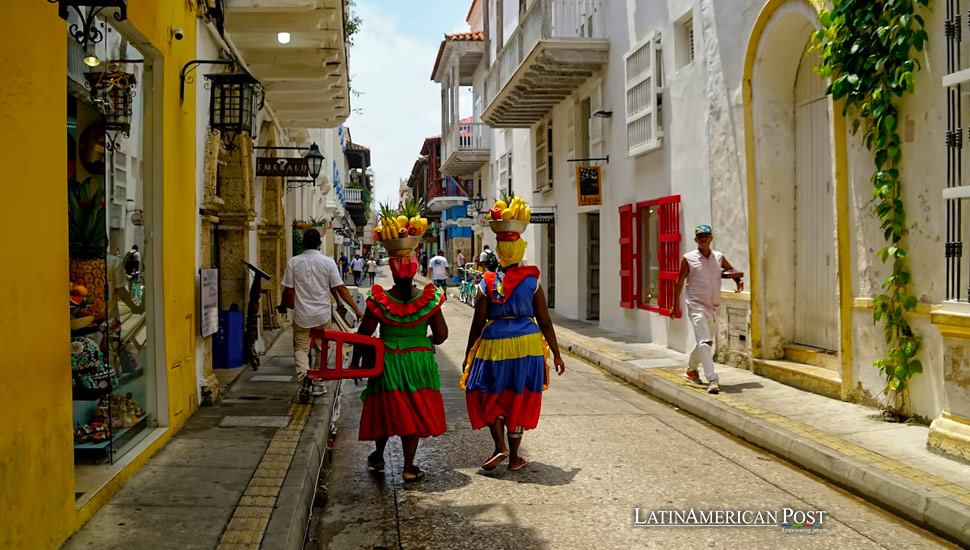Colombia Crowned Top Global Afro-Tourism Destination

Colombia has been named the world’s leading Afro-tourism destination at the World Travel Market Latin America. This award highlights its vibrant cities like Cali and Cartagena and the historic San Basilio de Palenque.
In a significant nod to its cultural richness and diverse tourism appeal, Colombia has been honored as the best Afro-tourism destination in the world. The accolade was bestowed upon the country at the second annual Afrotourism Awards during the World Travel Market (WTM) Latin America, held in Sao Paulo, Brazil. This recognition spotlighted Colombian cities such as Cali, Cartagena de Indias, and the Caribbean municipality of San Basilio de Palenque, famed for their deep-rooted Afro-Colombian heritage.
Colombia’s triumph at the awards didn’t happen in isolation. It represented the culmination of a broader national effort to showcase its sustainable and inclusive tourism industry. Carmen Caballero, president of the state agency ProColombia, emphasized the country’s substantial presence at the event. “Colombia has made an indelible mark at this event, a milestone in terms of participation for the country,” she stated in a press release. The Colombian showcase was prominent, with a 120 square meter stand featuring 25 Colombian companies, signaling a robust push to promote national tourism.
Caballero proudly noted that these efforts have not only boosted Colombia’s visibility on the global stage but also catalyzed significant business deals, with more than eight million dollars generated, underscoring the strength and potential of Colombia’s tourism sector. “We are proud to receive this prestigious award, highlighting our commitment to preserving the rich Afro heritage,” she added.
In the competition, Colombia secured about 20% of the votes, impressing judges with its ability to preserve its Afro roots while offering authentic tourism experiences. The highlighted destinations—Cali, Cartagena de Indias, and San Basilio de Palenque—were praised for their historical and cultural significance.
Afrotourism in Colombia involves experiential activities that celebrate the culture and traditions of the Afro-descendant population. ProColombia elaborated that this includes everything from historical tours to cultural festivals, such as the Petronio Alvarez Pacific Music Festival in Cali, which draws substantial visitor numbers and significant economic benefits to the region. Julián Franco, Secretary of Tourism for Valle del Cauca, where Cali is the capital, underscored the festival’s role as a major draw for travelers, generating approximately 19 billion Colombian pesos (around 4.8 million dollars) annually.
“The recognition reiterates the global importance of our Afro culture, highlighting its ancestry and rich cultural expressions. We must continue strengthening Valle del Cauca’s festivals to maintain this national and international positioning,” Franco commented.
In addition to the Afro-tourism award, Colombia garnered accolades at the fourth edition of the Responsible Tourism Awards, organized by WTM Latin America. This underlines the country’s commitment to sustainable tourism. Notably, Colombian companies such as Apata Colombia and Impulsa Travel received Gold recognitions, and Manakin Nature Tours was honored for their efforts in promoting socioeconomic impact and peacebuilding through tourism.
Travolution International was awarded the Silver recognition for its efforts in promoting responsible tourism in destinations by creating collaboration networks, according to ProColombia’s release. These accolades for Colombia at a major international travel market event underline the country’s increasing appeal as a top destination not just for its scenic beauty and hospitality but also for its profound cultural heritage and sustainable tourism practices. They reflect a strategic emphasis on tourism that respects and promotes local cultures and environments, an increasingly important direction in the global tourism industry. This approach enhances Colombia’s image abroad and boosts its economy, creating opportunities and promoting international understanding and appreciation of its diverse cultural fabric.





